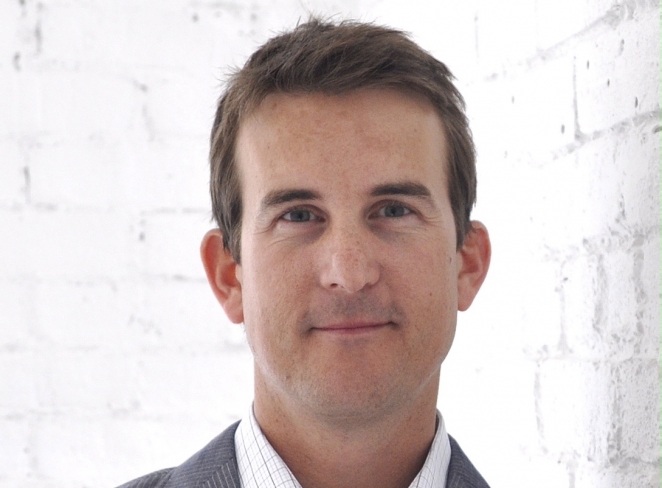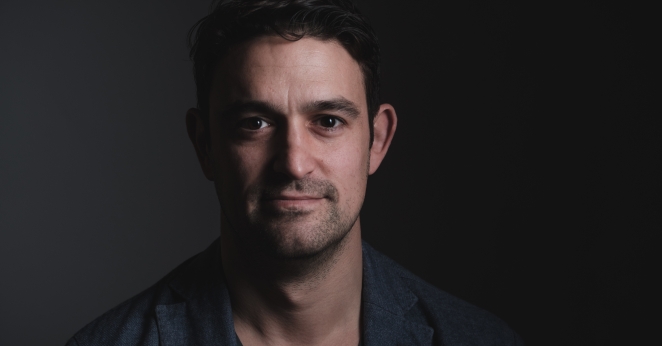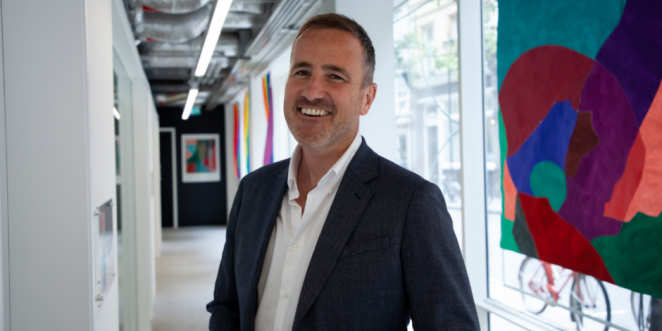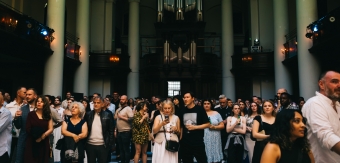The world of advertising does not work the way it does in Mad Men. Or at least, it doesn’t anymore. Indeed, it is often argued in some corners that a lot of the ‘old-school’ romance of the industry has been eradicated by decades of recycled ideas and generic campaigns. But look beneath the surface and there is still a beating heart to the old beast; an engine thrumming with creative ambition and emboldened by the various channels afforded our modern world.

Mike Sutton
To cut a long story short; there is a reason why advertising agencies still exist and a reason why even the biggest brands rarely decide to go in-house with the creative when there’s something they really want to say. Top advertising agencies understand how to make things look, sound and feel appealing and do so in a way that doesn’t detract from the overall message of the service, product or brand.
They speak the language of emotion and engagement and they are constantly evolving. So it doesn’t work the way it did for Don Draper anymore. It’s far better than that.

Patrick Garvey
But what if you’ve never worked with an agency before and you’re not sure how to ensure you’re putting the right people in charge of your brand? I was able to reach out to some of the brightest minds in advertising over the last couple of weeks and ask them what brands should be looking for to find an advertising agency.

Chris Mellish
I picked the brains of Mike Sutton, President and CEO at Zulu Alpha Kilo, Patrick Garvey, Founding Partner and Managing Director at WE ARE Pi and Chris Mellish, CEO at TMW Unlimited. Thanks to their unique insights, we have come up with a set of the right questions you should ask an agency, and the right way to ask them.
What questions should clients be asking?
According to Mike Sutton, "The first question clients should always ask themselves is 'What are we looking for?'" Though it seems obvious, Mike has met a lot of marketers who haven’t taken the time to clearly articulate what they’re looking for in an agency and this is critically important for both parties.
The best approach for clients is always to start with the end in mind and write down the specific attributes of what you’re looking for and what you’re not looking for. "Is it a transactional project that you need help with or is it a longer-term business partnership that you’re seeking?"
The second question clients should ask is “How will we find the agency that’s best for us?" According to Mike, running a pitch is a big and important undertaking. The entire process needs to be clarified at the outset. An agency search can be time-consuming and costly, "especially if it leads to a mismatch between the “winning” agency and the client."
Surely clients can mitigate the risk of a wrong hire by using a search consultant but, like most things in life, there are good ones and bad ones. The best ones are the ones who are intimately familiar with the agency landscape, who can bring valuable industry knowledge and be great matchmakers.
As a client, Patrick Garvey would be asking himself three questions: “What are the biggest problems I am facing today? What are my biggest challenges over the coming years? And what else is giving me a real headache in my day job?” That will provide a solid base to understand what support is needed, where and when.
"That’s not to say that you’ll necessarily find most of the answers outside of your organisation," Patrick continues. "But you will almost certainly find specialist knowledge and expertise in leading-edge behavioural, consumer, and cultural foresight. Once you’ve got your ducks in a row then you can partner with the right companies (and not all of those companies may be agencies), who can help support you at the right stages of your journey."
Lastly, Chris Mellish believes it all comes down to a few fundamental questions, such as who they want alongside them day in & day out, and more importantly who they want on their side in times of crisis.
"Often, it’s easy for clients to get caught up on a specific idea they see at the pitch, which is understandable and obviously important," Chris says. "But sometimes looking past that and remembering that the final work will be crafted together by both parties is just as vital."
Clients should reason towards understanding if the agency “has the temperament and attitude to truly work in partnership with them. We like to think that the days of clients admiring the ego that used to accompany many of those in our industry have well and truly passed."

Is it all about experience or is there something to be said for "giving the new guys a shot”?
This is the question that really generated some contrasting opinions in our repondents. According to Mike Sutton, "You really can’t beat experience and a track record of delivering great work and results. Smart clients have done their homework and they already know your reputation and past work. Once a client has confidence in the agency’s experience, then it’s all about chemistry and fit."
At the same time, from an agency's perspective, Chris Mellish believes that the new guys should be given a shot. "There’s a slightly lazy streak that sometimes manifests itself in our industry, where agencies are put into boxes, and never shall they move, and never will people look outside those boxes."
According to Chris, clients should keep their minds open to new answers to those old questions. He brings the example of his agency, TMW Unlimited, as one that is "quite simply wired in a different, more modern way."
Lastly, Patrick Garvey sees the value in clients giving new guys a shot, as it provides opportunities for smaller players to grow beyond imaginabile. "Do you sign Harry Kane or Braut Erling Haaland? There’s merit in both, but I think brand owners need to give whoever is going to bring breakthrough thinking and chemistry a shot. What is going to work best for your team at that given moment in time and against your specific needs in the future?"
One transformational moment in the history of WE ARE Pi was being selected for their first piece of global business, when they were up against what could certainly be considered giants of the industry. Patrick continues: "There's no doubt in my mind that the client team saw in us the right drive, fresh thinking, and chemistry that they were looking for in their agency partner. Fast forward to the present day, and now we could be seen as the agency with the experience on that very same account, so it’s on us to maintain that same hunger and drive that got us in the door in the first place."

How much effort do you put into sourcing new clients? Do they come to you or do you find yourself pitching for work more often?
A lot of agencies have a new business development team that goes out and pitches ideas to new clients. Mike Sutton and Zulu have chosen a different path and it works for them. "At Zulu, we’ve chosen to not participate in new business pitches where creative spec work is required. That means we’ve had to grow in a different way."
As a result, Zulu's current clients love the team for it, because they know they are focused on solving their business challenges rather than always pitching new business. "Our belief is that by focusing on doing outstanding work for the clients we have, new ones will seek us out."
New business pitches have always been a hot topic in the industry. Mike continues: "New business pitching can be a big, shiny distraction for an agency. In 2015, we launched our #SayNoToSpec video and were blown away by the incredible response from virtually every corner of our industry. It turns out many clients and agencies felt the same as we did about the spec creative requirement in new business pitches."
When thinking about WE ARE Pi's approach to new business, Patrick Garvey finds inspiration in an old story from his university days: "Many years ago at university, someone said something to me on a night out that really stuck with me. My friend, who shall not be named (*Ed Palmer), said 'Paddy, you spread yourself a bit thin. Like a pancake'. The observation was about me trying a bit hard to make friends," Patrick says.
"Putting that into new business terms, rather than spending a lot of time and energy chasing down lead after lead (a remarkably inefficient use of your time) or taking on every pitch that comes your way, channel that same energy and focus into ensuring your agency is the best place to answer the biggest challenges faced by your bullseye clients." Patrick believes that more opportunities will come your way as you solve business challenges, – and hopefully "some solid mates" too.
At TMW, Chris and his team try to make sure that clients who would benefit from working with them know who they are. "However, we are lucky that a lot of clients do come directly to us because of previous work and/or what our clients say. And to be honest, those that come to us through recommendation are often the best matches."

Why should people still be looking at third-party agencies when in-house is an option?
According to all three of our respondents, there are still considerable perks in working with a third party agency whilst still having an in-house team. Mike Sutton says: "The main two benefits of clients working with outside agencies are talent and objectivity." He also adds that these days, a large number of clients have in-house teams that the agency can collaborate with through the strategic, creative and production process. "The key to success is setting the right conditions for collaboration at the outset. Firstly, both client and agency need to bring a spirit of collaboration and establish clear rules of engagement. And having the same ambitions for the work is also critical."
Surely in-house teams are on the rise, but according to Patrick Garvey, it takes a long time for a client to be able to cultivate a healthy and creative in-house team. While some of the best in-house teams in the industry are making incredibly impactful work (Oatly, Spotify and Airbnb to name a few), "to get to that level it’s not easy. It takes time, trust, and the creation of the right environment for creativity to shine."
Additionally, the battle for top talent is not won by either of the two sides. Agencies are still able to make brilliant work. "Perhaps the days of a one-size-fits-all agency model is ripe for a bit of a shakeup, but there is a lot to be said for an outside perspective to compliment ever-developing internal teams," Patrick continues.
Lastly, Chris Mellish believes we should not look at the "agency vs in-house" argument as a struggle, but more as flexible ways of working. He says: "In some cases, we work with in-house teams, and it works incredibly well. With in-house marketers living and breathing their brand, product, or service - we partner with them and fill the skill gaps where we can." Agency and in-house team skills complement each other. "Because, after all, we are both after the same thing and have the brand's best interest at heart."
Chris firmly believes it isn’t an ‘either-or’ answer. "It’s a sliding scale, all about having the right resources in the right places. Several of our clients do have in-house resources and indeed some of our people are working entirely in-house for our clients."
Still, there is a certain deep expertise, craft skill and agility that third parties can bring to the table. "Our core skill is creating and managing communications for our clients, in all forms. That means we can bring our Human Understanding ethos, fresh skills, and thinking to supplement and complement our clients’ own operations. We bring deep expertise and flexible resources in a way that’s difficult or commercially impractical for them to do within their own workforce," Chris concludes.
My sincere thanks to Mike, Patrick and Chris for taking the time to discuss this question with me. For more expert insight, click here to learn how to choose a design agency.






